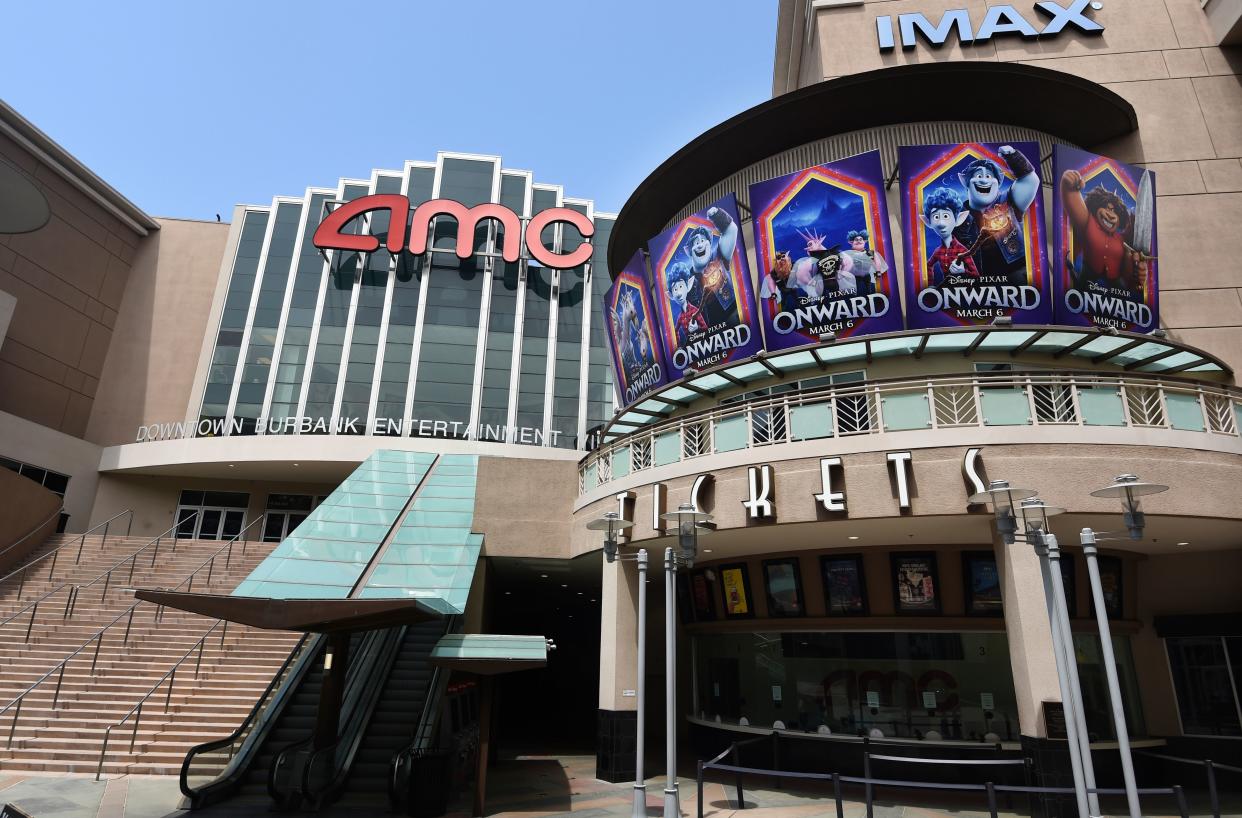Theater Circuits “Do Not Control Their Own Destiny,” Analyst Says, As Stocks Keep Sliding On Movie Summer Woes – Update

Click here to read the full article.
UPDATED at 1:15PM PT with closing stock prices. Movie theater stocks continued their slide Friday in the wake of Warner Bros’ decision to postpone the opening of Tenet another two weeks to August 12.
AMC shares fell nearly 3% to close at $4.16. Cinemark’s stock tumbled 8% to $11.39, a two-month low. Marcus declined 2% to $12.21. Shares in Imax dropped 3% to $10.54, while those of in-theater advertising firm National CineMedia slipped a fraction to $2.99.
More from Deadline
L.A. County Public Health Confirms 23 More Deaths And 2,169 New Cases of COVID-19
California Pulls Back On Reopenings As Florida, Texas Reimpose Coronavirus Shutdowns
On the London Stock Exchange, shares in UK-based Regal Cinemas parent Cineworld dipped 4% Friday to $64.08, their lowest point since May 22.
While the broader U.S. markets also ended the week on a bearish note, exhibition stocks have been slumping for weeks on negative COVID-19 news. Eric Wold, a research analyst at B. Riley, reported in a note to clients Friday that “pure-play” exhibitors have declined since June 8 by 35% on average, compared with a 5% downturn by the S&P 500. One major issue, he said, is theater owners’ century-old business model, in which they “don’t control their own destiny” as to Hollywood’s movie supply and studios can always opt to push movies later.
Industry eyes are now on Disney, which has not yet updated its plans for Mulan. The live-action remake is officially still planted on July 24, but there are strong indications it could shift later. COVID-19 trends have worsened considerably since AMC, Regal, Cinemark and other major circuits all announced plans to reopen in the first half of July. Tenet, which is directed by Christopher Nolan, an outspoken advocate for theatrical moviegoing, was initially set for July 17 and then got pushed to July 31 before the latest delay.
Wold said “continued flux” around release schedules for the second half of the year is keeping him “on the sidelines,” with neutral ratings on AMC, Cinemark and Marcus. Liquidity, which had been a short-term crisis as COVID-19 first hit the U.S. in March and early April, could once again be a threat, especially for AMC. The highly leveraged No. 1 exhibitor said this month that its recent debt raise provides enough cash through the end of November, but that forecast assumed a full reopening in July.
The analyst pointed out the unique challenges faced by theaters. “Although one could argue that exhibitors and regional theme park operators are somewhat in the same boat and face the same issues around reopening timelines, physical distancing protocols, capacity limitations, and increased cleaning requirements,” he wrote, “the risks for the exhibitors in this environment go one step further—in that they do not control their own destiny with content.”
Wold noted that he has a “buy” rating on the stocks of theme-park companies like Six Flags, Cedar Fair and SeaWorld. Those firms “can essentially open the gates when they are given the green light by state and local officials and own the rides and attractions that draw the guests,” Wold wrote, while exhibitors “can only do the same if there is quality film content for their screens. And that content is under the control of the studios, who may not want to risk releasing a multi-hundred-million-dollar film production until they are certain that movie theaters will be open and moviegoers will be filling the seats (in a socially-distanced manner, of course).”
New York, LA and San Francisco, the three biggest movie markets, remain the most problematic. Earlier this week, New York Gov. Andrew Cuomo put a pin in movie theater reopenings despite remarkable overall success in the state in combating the coronavirus. California Gov. Gavin Newsom, meanwhile, has been lamenting at daily news conferences that too many state residents are abandoning safety protocols. Some of the states with the biggest spikes in COVID rates — including Texas, Florida and California — are also among the nation’s most populous, which has rattled the broader market in addition to the exhibition sector.
Despite the gloomy developments in recent days, Wold said he does see “a path toward more normalized attendance trends in late 2021 and into 2022.” The main focus now for theaters is on managing their costs and ensuring they can survive an indefinite delay of first-run titles.
Cinemark and Marcus have indicated they can last well into 2021 even without box office and concessions revenue. National CineMedia and Imax, because of their revenue mix, anticipated being able to make it into 2022 even in a zero-revenue scenario. AMC, however, is in a tricky spot given its high-interest debt.
Best of Deadline
Coronavirus: Movies That Have Halted Or Delayed Production Amid Outbreak
Hong Kong Filmart Postponed Due To Coronavirus Fears; Event Moves Two Weeks Before Toronto
Sign up for Deadline's Newsletter. For the latest news, follow us on Facebook, Twitter, and Instagram.
